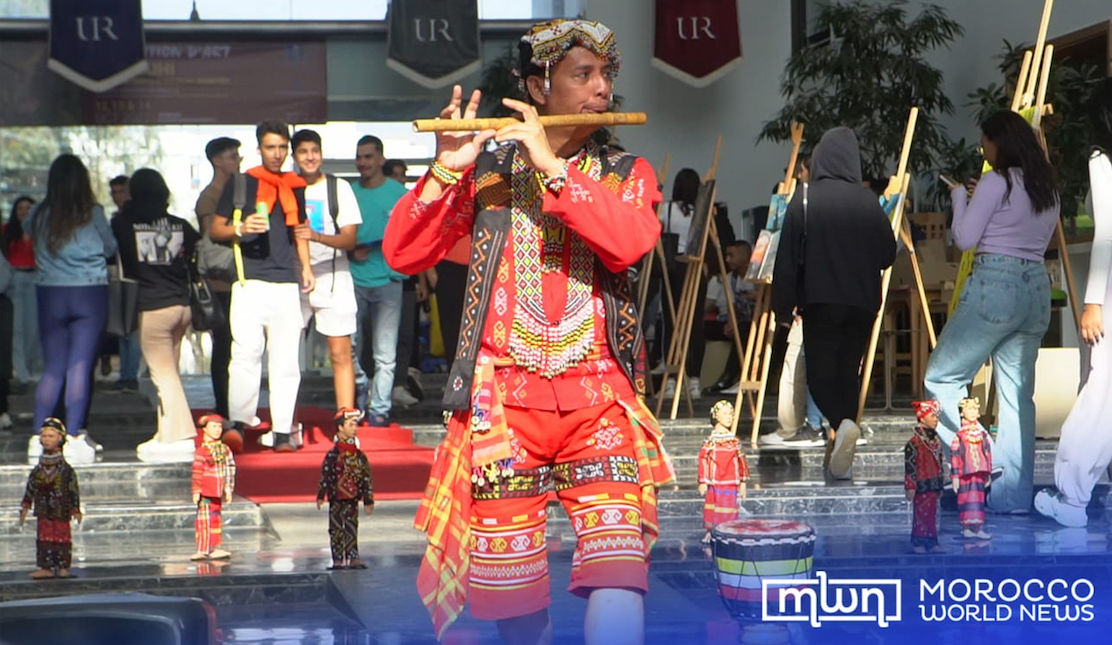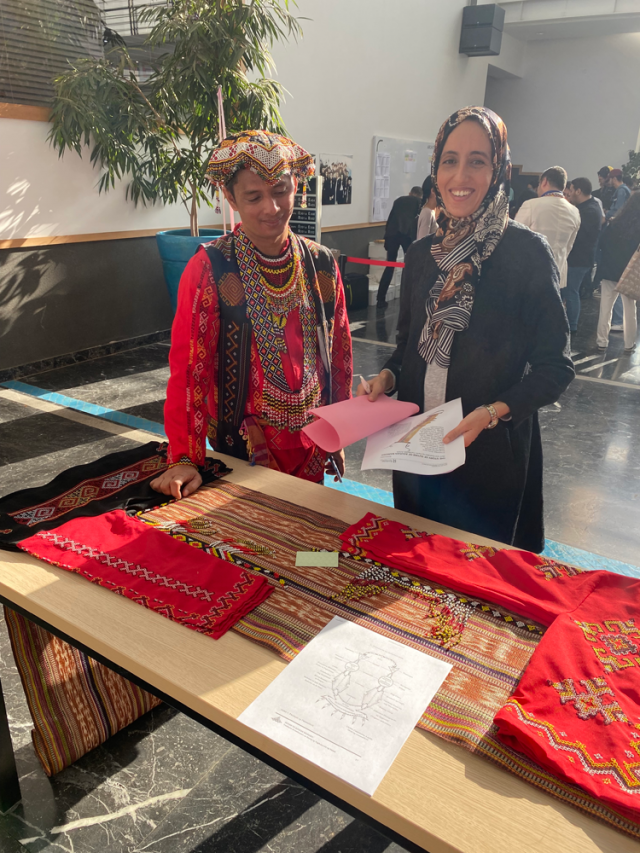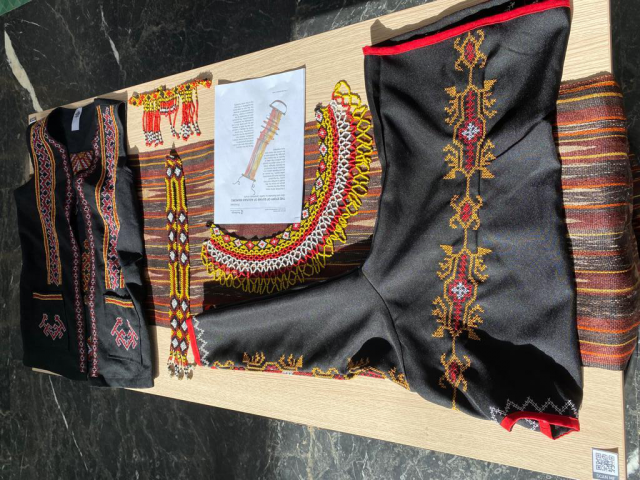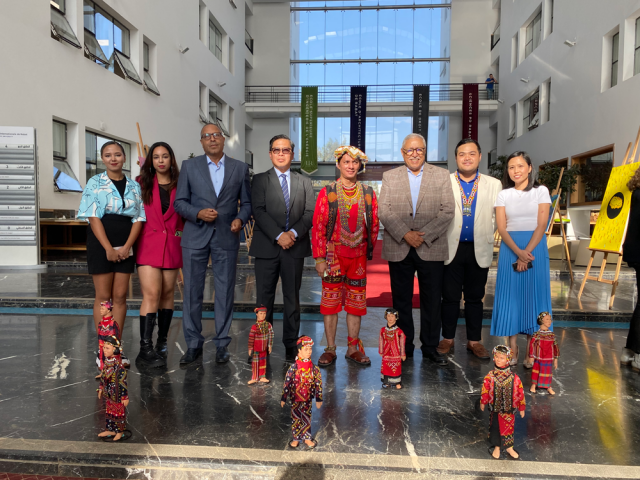Agusan Manobo arts featured in Morocco to celebrate National Indigenous Month

What has Morocco and the Philippines got in common?
Their love of indigenous arts and textile!
In celebration of the National Indigenous Month, the Philippine Embassy in Rabat, Morocco showcased the culture and tradition of Agusan-Manobos through the different patterns of suyam embroidery, paintings, ceramic sculpture and cultural performances at the Université Internationale de Rabat (UIR).
“Morocco is known for its long history of textile making. There are some similarities in terms of fabric and styles to our Philippine textile and we also want to highlight this connection in the exhibit,” Ambassador Leslie Baja said.
“We want to showcase the contributions and culture of the indigenous peoples in the Philippines, as well as raise awareness about their plight given the socio-economic development that’s happening now. We want to be able to preserve and protect our unique culture through these exhibitions,” Baja added.
Century-old traditions of textile making
The exhibit titled Kinabuhi: Ompo and Suyam of Agusan Manobo features the vibrant culture of the Agusan-Manobo indigenous peoples group through the artworks and performances of Carlito Camahallan Amalla, an Assistant Professor of the Design Foundation Department at the De La Salle College of Saint Benilde who hails from Agusan del Norte.
He also serenaded the crowd with panawagtawag literally translated as “calling” using suling, a traditional bamboo flute from Agusan.
The art pieces represent the centuries-old tradition of the Agusan-Manobo tribe and the interwoven elements of kinabuhi which means life or relief, suyam – a traditional embroidery style of the Agusan-Manobo tribe, and ompo which represents a god or a sentinel who wards off evil spirits and keeps watch over the people.

During the lecture, Amalla discussed the culture and traditions of Agusan-Manobos through the different patterns of suyam embroidery which depict their daily life, struggles, and aspirations. He also shared the history of Agusan-Manobo weavers and how weaving as a communal activity served as a medium to pass on traditions from one generation to the next.
Amalla received the “Distinguished Alumnus in Community Empowerment Award” from the University of the Philippines Alumni Association in 2016, and the “2020 Outstanding Leadership in Culture and the Arts Award” in New York.
He is also a Cultural Goodwill Ambassador whose works were exhibited in Wales, Gent, London, and New York.

Cultural exchange between Morocco and Philippines
Abdelhafid Debbarh, Counselor and Chief of Staff of the Office of the University President, congratulated the Philippine Embassy for hosting its first art exhibit in Morocco. Debarrh expressed commitment to a continued partnership between the university and the Embassy through cultural activities and programs. Debarrh conveyed the university’s willingness to enter into a Memorandum of Understanding with Philippine universities to improve people-to-people exchanges between the two countries.

There are approximately 5,600 Filipinos living in Morocco. The Philippine Embassy in Rabat reopened in 2020 after being closed for more than three decades. The Embassy of the Philippines in Rabat is the newest embassy in Africa.
— LA, GMA News




